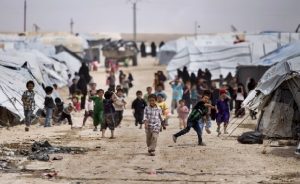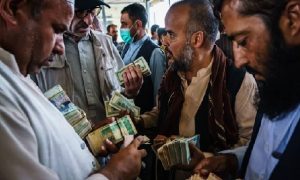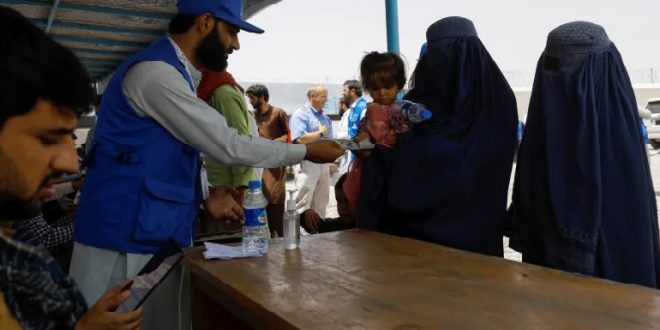24-02-2023
By SJA Jafri + Bureau Report
 KABUL/ ISLAMABAD: A new report by Crisis Group warns against international donors cutting aid to Afghanistan in the wake of the Taliban’s curbs on women’s education and ability to work at NGOs, instead arguing for Western countries to find a “liminal space between pariah and legitimate status” to respond to the ongoing humanitarian crisis.
KABUL/ ISLAMABAD: A new report by Crisis Group warns against international donors cutting aid to Afghanistan in the wake of the Taliban’s curbs on women’s education and ability to work at NGOs, instead arguing for Western countries to find a “liminal space between pariah and legitimate status” to respond to the ongoing humanitarian crisis.
The report, released on Thursday, focused primarily on two Taliban edicts announced in December, the first suspending female education at private and public universities, and the second banning Afghan women from working at local and international NGOs. The moves led to protests and global condemnation, while sounding a possible death knell for the Taliban’s initial openness to engage with the international community following its takeover of the country in August 2021.
Accompanying the Taliban’s clampdown has been a reassessment of international aid from key international government donors, according to the report’s authors. That aid, despite being immediately paused in the wake of the group’s rise to power, had resumed amid concerns over widespread hunger and poverty in the country of about 40 million.
“Donors are turning away from Afghanistan, disgusted by the Taliban’s restrictions on women’s basic freedoms,” Graeme Smith, Crisis Group’s Senior Consultant on Afghanistan, said in a statement accompanying the report.
 “However, cutting aid to send a message about women’s rights will only make the situation worse for all Afghans,” he added. “The most principled response to the Taliban’s misogyny would be finding ways to mitigate the harms inflicted on women and other vulnerable groups.”
“However, cutting aid to send a message about women’s rights will only make the situation worse for all Afghans,” he added. “The most principled response to the Taliban’s misogyny would be finding ways to mitigate the harms inflicted on women and other vulnerable groups.”
The report which drew on dozens of interviews with “Afghan and international women activists, current and former Afghan officials, teachers, students, aid workers, human rights defenders, development officials, diplomats, business leaders and other interlocutors” noted Western governments in the second half of 2022 warned aid agencies of a growing sense of donor fatigue towards Afghanistan. It did not name the governments to which it referred.
The authors further warned that following the most recent rights rollbacks, “many Western politicians fear voters will not accept the idea of their taxes helping a country ruled by an odious regime,” while adding that “consultations in January 2023 among major donors produced initial thinking that aid should be trimmed back to send a message to the Taliban, although the governments involved did not agree on which budgets to cut”.
 Again, the report did not name the countries in question.
Again, the report did not name the countries in question.
The United Nations, which has already had to roll back some aid operations in the wake of the ban on NGO workers, has appealed for $4.6bn to aid Afghanistan. The sum is the largest request for a single country ever. The UN has warned that 28 million people are in need of humanitarian aid, accounting for two-thirds of the country’s population but Crisis Group warned that “Western governments seemed poised to fall significantly short” of that appeal. The report authors added that options discussed in the wake of the December edict have included “deepening sanctions, cutting aid or levying other forms of punishment in response”.
They noted that the G7 grouping of the world’s most wealthy countries had said there would be “consequences for how our countries engage with the Taliban” in the wake of the December edicts. The grouping had provided $3bn in humanitarian funding for Afghanistan in 2022, the report noted.
 Pressmediaofindia
Pressmediaofindia




